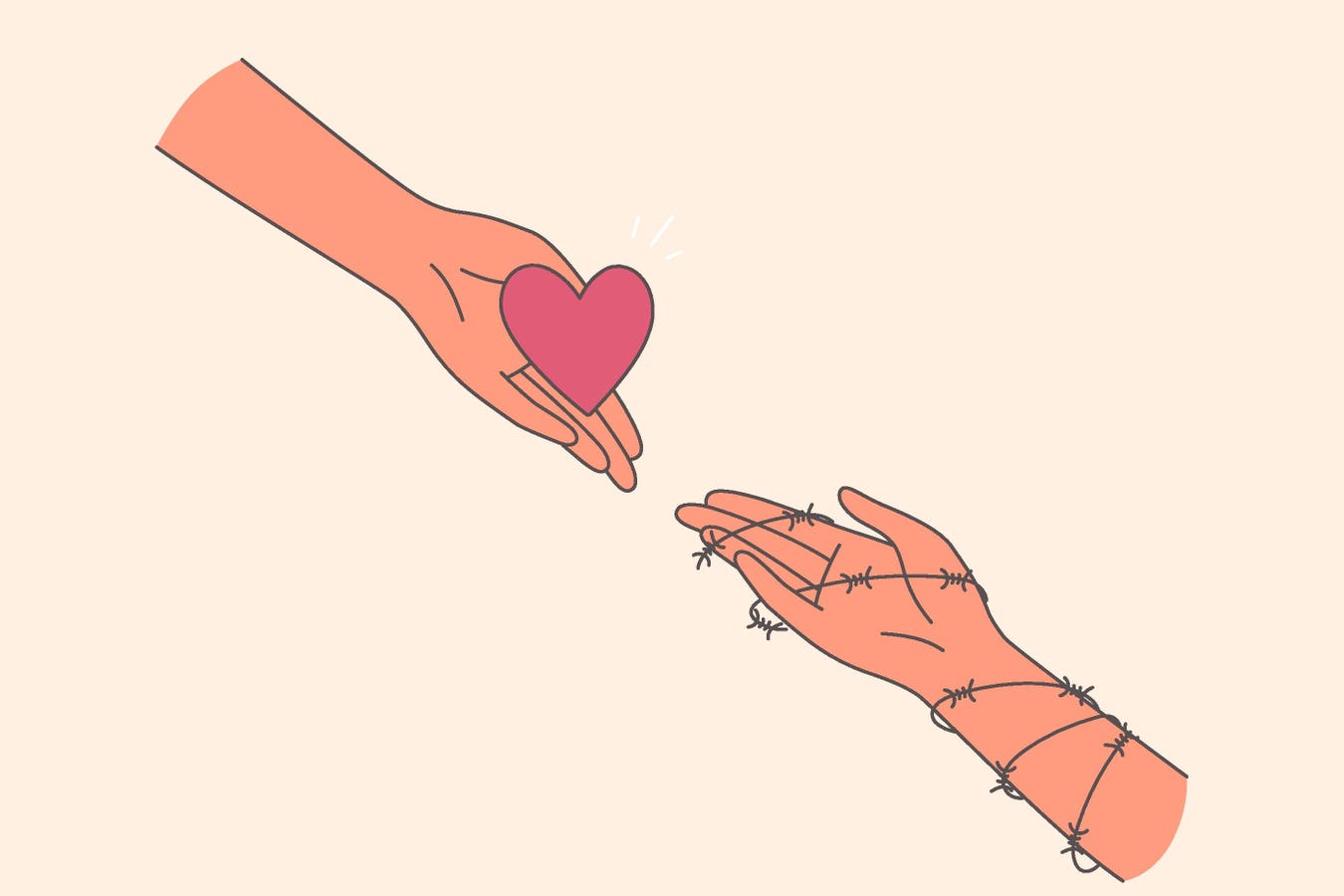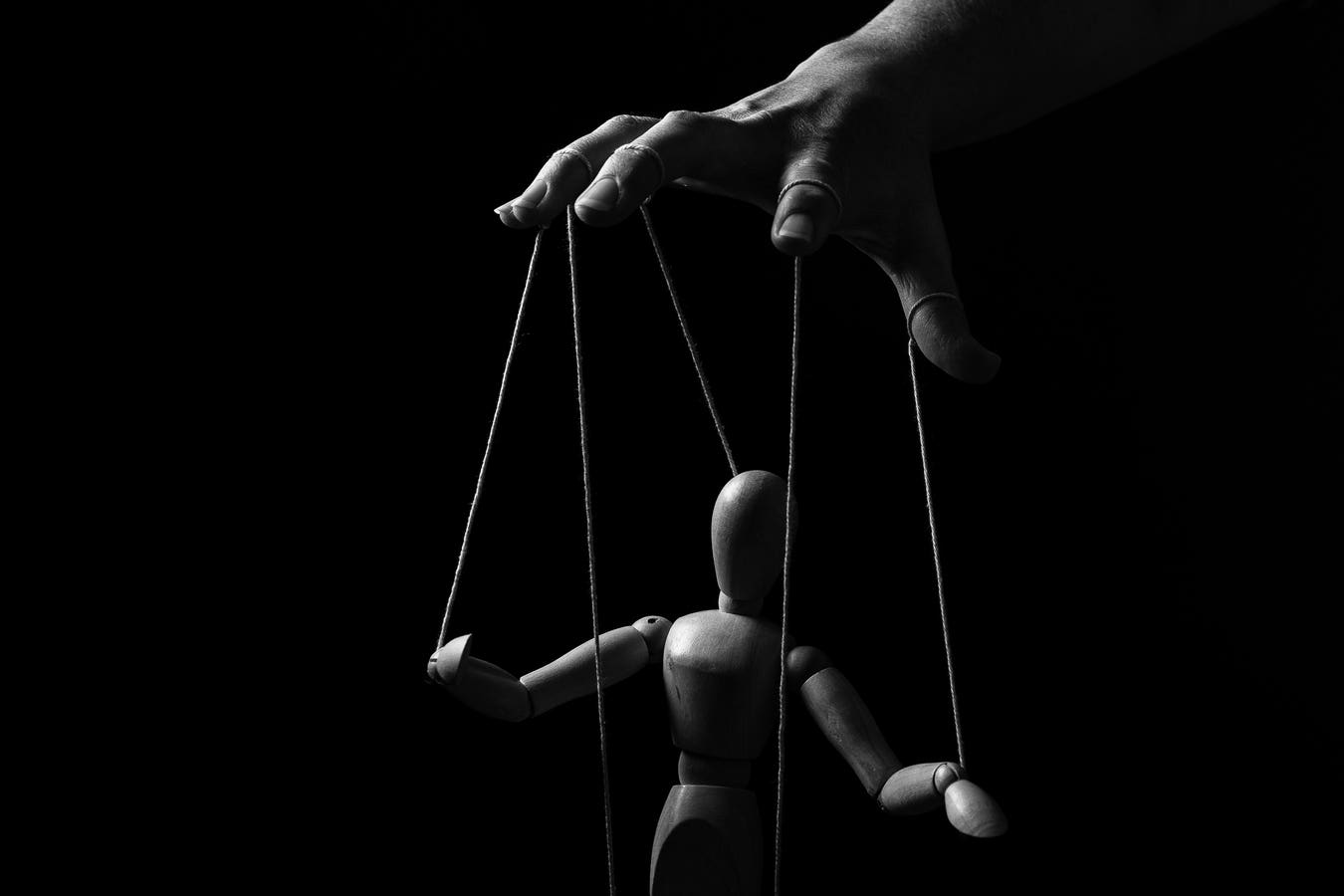Relationships are meant to nurture, support and elevate us. However, when things start to feel off, … More
When we care deeply about someone, it’s easy to slip into a pattern of giving them the benefit of the doubt — again and again. We often become so emotionally invested that we overlook harmful behaviors, excuse hurtful actions or downplay red flags, convincing ourselves that love, time or patience will eventually smooth everything over. Our desire for things to work out can cloud our judgment, making it harder to see when something isn’t right.
But, healthy relationships are built on more than just hope and emotional investment. If you’ve been feeling unsettled or questioning the dynamic you’re in, it’s important to take a step back and be honest with yourself.
Here are three crucial questions to ask yourself in a relationship to steer clear of red flags — and how to move forward if you find yourself answering “yes.”
1. Do You Find Yourself Justifying Your Partner’s Behavior Instead Of Questioning It?
It’s natural to want to support and understand your partner, but constantly excusing their negative behavior can be a red flag. Are you often rationalizing how they treat others poorly, brushing off their lack of empathy or defending their actions when they hurt you? This tendency to justify can mirror what we see in more serious forms of abuse, like intimate partner violence, where individuals — whether victims or perpetrators — may justify harmful actions in real-time.
A 2023 study published in Social Psychological and Personality Science shows that people who justify violence or emotional harm are often trapped in a cycle that allows the abusive behavior to persist.
In any relationship, understanding and empathy are crucial. However, when harmful behavior is constantly overlooked, it can create an unhealthy dynamic. If you’re consistently making excuses for your partner’s harmful actions rather than questioning them, you may be ignoring deeper, unhealthy traits that need to be addressed. This continuous justification can prevent both partners from holding themselves accountable, which is essential for a healthy relationship.
Here’s what you can do instead:
- Acknowledge the behavior for what it is. If something feels wrong, don’t dismiss it.
- Have an honest conversation with your partner. Share your concerns and ask them to reflect on their actions.
- If they consistently refuse to take accountability or dismiss your feelings, it may be a sign that the relationship isn’t serving either of you in a healthy way.
It’s important to recognize that while empathy is essential, enabling harmful behaviors only perpetuates the cycle of harm.
2. Do You Feel Like You’ve Lost Trust In Your Own Feelings, Intuition Or Instincts?
In a healthy relationship, you should feel empowered to trust yourself. However, if you find yourself constantly second-guessing your emotions, seeking endless reassurance or allowing your partner’s perspective to overshadow your own, you might be experiencing emotional manipulation — often referred to as gaslighting.
A 2023 study highlights how gaslighting plays out in relationships. The findings revealed that individuals who experienced gaslighting reported diminished self-esteem, increased mistrust of others and an overall loss of self-trust. Victims of gaslighting often described how their partner’s consistent invalidation of their feelings and memory distortion led them to doubt their own perception of events, creating an emotional and psychological dissonance.
When you find yourself losing touch with your intuition or constantly questioning your feelings, it may be a sign that you are caught in a similar cycle of gaslighting. Recovering from this form of abuse involves acknowledging the manipulation, separating from the perpetrator and focusing on rebuilding trust in oneself through healthier relationships and self-empowering activities.
Here’s what you can do recognize and walk away from this red flag:
- Pay attention to your emotions and your gut feelings. Trust that your intuition is there for a reason.
- If your partner’s version of events consistently overrides your reality, consider seeking support from a therapist or counselor to help regain clarity and restore your self-trust.
- Assert your own perspective. Healthy relationships should validate and honor both partners’ feelings, encouraging trust and mutual respect without manipulation.
3. Are You Often Left With More Questions Than Answers After Important Conversations?
Disagreements are natural in any relationship, but after a conflict, both partners should ideally leave the conversation with a sense of clarity and understanding. If, instead, you often find yourself with lingering questions, confusion or frustration, it could indicate deeper communication issues.
When your partner avoids answering direct questions or becomes dismissive, it might be a sign they’re not taking accountability for their actions, which only compounds this uncertainty.
Research shows that the more a conflict is perceived as a threat to the relationship, the more it increases relational uncertainty — both about yourself, your partner and the relationship itself. For example, a 2016 study found that unresolved conflicts, especially those where the issue is seen as unresolvable, create a heightened sense of uncertainty, making it harder for both partners to feel secure and understood.
If you’re consistently left in the dark post-conflict, it may be time to address the pattern and prioritize clearer communication.
Here is what you can do:
- Communicate your need for clarity. Express how important it is for both of you to leave discussions with a mutual sense of understanding.
- Ask for direct answers to specific questions. If your partner becomes defensive or evasive, it’s a sign they might be avoiding accountability.
- If this pattern of confusion persists, seeking couples therapy could help both of you address the underlying issues and engage in healthier communication moving forward.
If you answered “yes” to any of these questions, it’s crucial to pause and reflect on the health of your relationship. These red flags suggest emotional strain that, if left unaddressed, can erode your self-esteem and lead to long-term dissatisfaction. Remember, relationships should support your growth, not hinder it.
If you’re unsure where your relationship stands right now, take the science-backed Relationship Satisfaction Scale to gain clarity.








